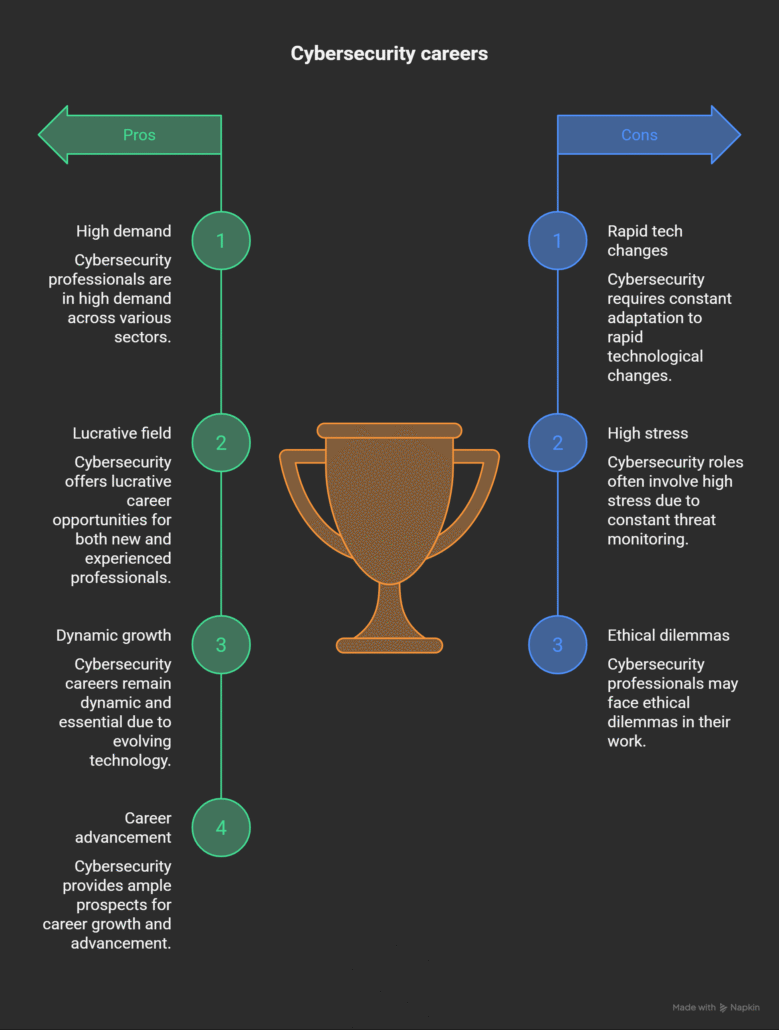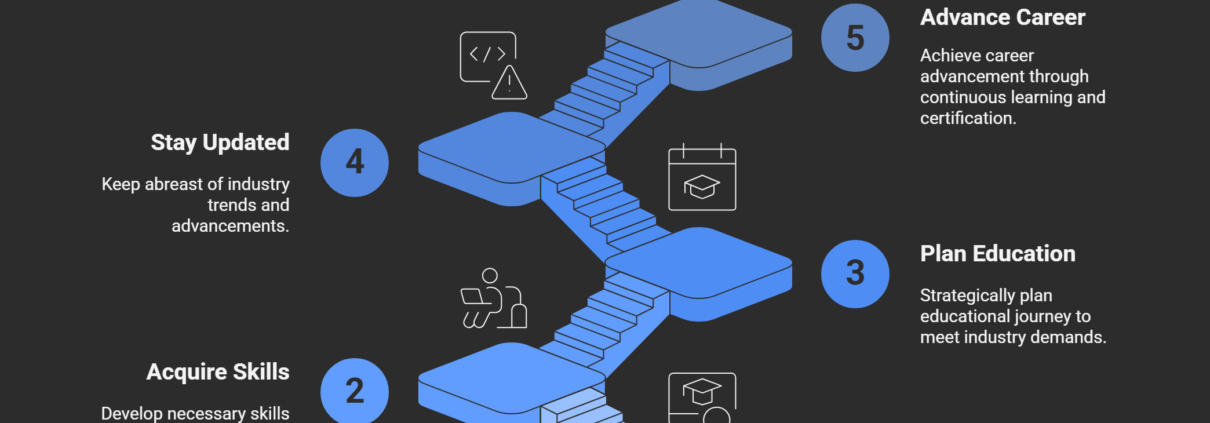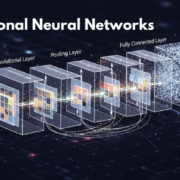Cybersecurity Certification Roadmap 2025: Shaping Your Career Path
In the digital-first era, cybersecurity is no longer a support function—it is a core pillar of business resilience. Every organization, from small startups to multinational corporations, is investing in robust defense strategies. With cybercrime projected to cost the world trillions annually, the demand for skilled professionals has skyrocketed. For individuals who want to succeed in this field, certifications remain the most reliable way to validate expertise and gain credibility. This is where the Cybersecurity Certification Roadmap 2025 becomes essential, guiding professionals at every stage of their career journey.
The Evolution of Cybersecurity Certifications
Not long ago, certifications were considered optional add-ons to work experience. Today, they have become a minimum expectation. Employers use them as filters when hiring, clients look for them in consultants, and professionals depend on them to stand out in competitive job markets. By 2025, certifications are no longer just about passing an exam; they represent a combination of applied knowledge, hands-on labs, and continuous learning.
The roadmap has also evolved. Previously, a single certification like Security+ or CISSP could open most doors. Now, with the specialization of cybersecurity roles, cloud engineers, penetration testers, security architects, and compliance officers, each path demands its own set of credentials.
Building the Foundation
Every successful journey begins with a strong base. Entry-level certifications help new professionals prove they understand the language of cybersecurity.
- CompTIA Security+ (SY0-701) remains the most sought-after foundational certification in 2025. It covers core principles such as risk management, network security, and incident response.
- Certified in Cybersecurity (CC) by ISC² is also gaining momentum, offering a globally recognized starting point.
- For those with networking ambitions, Cisco CCNA 200-301 bridges the gap between IT infrastructure and security, a critical area in defense strategies.
By earning one of these, professionals position themselves for their first security-focused roles such as junior analysts or system administrators.
The Intermediate Stage: Gaining Depth
After building a base, the next step in the roadmap is to deepen technical expertise. This is the stage where professionals distinguish themselves by selecting specialized tracks.
- Those interested in offensive security may choose Certified Ethical Hacker (CEH) or Offensive Security Certified Professional (OSCP).
- Aspiring threat analysts and SOC professionals gravitate toward CompTIA CySA+ or Microsoft’s SC-200 Security Operations Analyst certification.
- With the cloud dominating IT infrastructure, AWS Security Specialty and Google Cloud Security Engineer certifications are becoming indispensable.
At this stage, professionals are not only passing exams—they’re building lab environments, simulating attacks, and practicing defense measures in real-world scenarios. Employers favor candidates who can demonstrate these skills beyond theory.
Advanced Certifications: Becoming a Leader
The higher tiers of the Cybersecurity Certification Roadmap 2025 are designed for professionals aiming for senior technical or leadership roles. These certifications prove mastery and strategic thinking:
- CISSP (Certified Information Systems Security Professional) continues to be the gold standard, validating broad expertise in eight domains of cybersecurity.
- CISM (Certified Information Security Manager) focuses on governance, compliance, and aligning cybersecurity programs with business strategy.
- CCSP (Certified Cloud Security Professional) has gained enormous traction as enterprises migrate workloads to the cloud.
- Specialists seeking elite penetration testing credentials look toward OSCP or even OSEP (Offensive Security Experienced Professional).
By reaching this stage, professionals can move into roles such as security architect, CISO, or consultant, guiding organizations through high-level strategies and risk management.
Trends Redefining the Roadmap in 2025
Unlike in the past, certifications now must account for emerging technologies and global challenges. The roadmap for 2025 reflects this shift.
- AI in Cybersecurity: As artificial intelligence plays a dual role—strengthening defenses and powering attacks—new certifications focusing on AI-driven security are being developed.
- Zero Trust Architecture: Enterprises are abandoning perimeter-based defense models. Certifications covering Zero Trust frameworks are gaining prominence.
- Privacy and Compliance: With regulations like GDPR, HIPAA, and new global data laws, compliance-focused credentials are becoming critical for governance roles.
- Sector-Specific Paths: Industries such as healthcare, finance, and defense demand tailored certifications that address their unique compliance and threat landscapes.
Staying aligned with these trends ensures professionals are not only certified but also relevant.
Avoiding Roadmap Pitfalls
While the roadmap provides structure, professionals must avoid common mistakes. One is chasing certifications for prestige rather than relevance. For example, pursuing advanced penetration testing credentials makes little sense if your goal is governance. Another pitfall is neglecting hands-on experience. Employers often say they prefer a candidate with Security+ and lab experience over someone with CISSP who has no practical skills. Finally, professionals must stay updated—cybersecurity evolves too quickly for static knowledge to remain valuable.
Real-World Application of a Roadmap
Imagine a professional starting their journey in 2025 with CompTIA Security+. They gain an entry-level SOC role while working toward CySA+. After two years, they transition into cloud security, earning AWS Security Specialty. Eventually, they pursue CCSP and CISSP, positioning themselves for a role as a senior security architect. This logical progression not only increases salary potential but also keeps their skills aligned with industry needs.
Career paths differ, but the principle remains: certifications are milestones that build a long-term, resilient career. Resources like Cert Empire simplify this process by offering structured exam preparation tools and guidance tailored to evolving certification trends.
The Outlook for Cybersecurity Careers
By 2025, cybersecurity jobs are expected to outpace available talent by millions. Organizations worldwide struggle to fill key roles, creating opportunities for professionals who follow structured roadmaps. Salaries are climbing, job security is stronger than in most industries, and certified professionals often find themselves with global career options. Whether working as ethical hackers, consultants, or executives, certification-backed professionals enjoy career flexibility unmatched in the IT world.

Last Thoughts
The Cybersecurity Certification Roadmap 2025 is more than a checklist of exams, it’s a strategy for building credibility, advancing careers, and preparing for the challenges of a constantly changing threat landscape. Whether you’re just entering cybersecurity or preparing to step into leadership, having a roadmap ensures your time, effort, and investment lead to long-term growth. With the right certifications at each stage, you’ll be ready to thrive in one of the most vital and rewarding industries in the world.
More Details Here:
https://medium.com/@jackliim285/cybersecurity-certification-roadmap-2025-for-all-3cd1a0fd1c13











Leave a Reply
Want to join the discussion?Feel free to contribute!